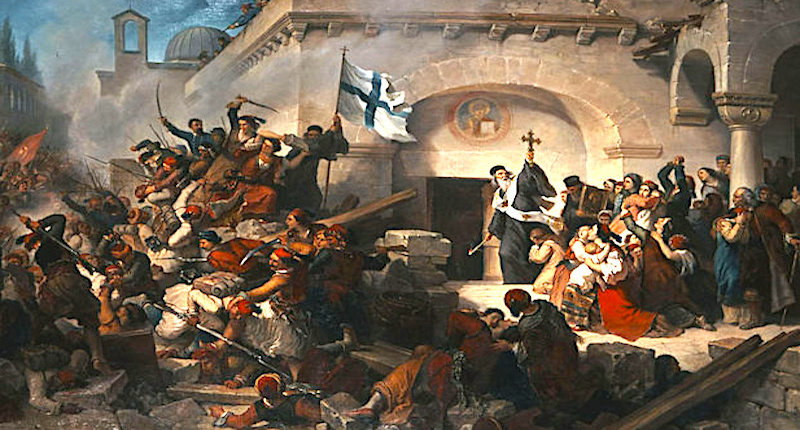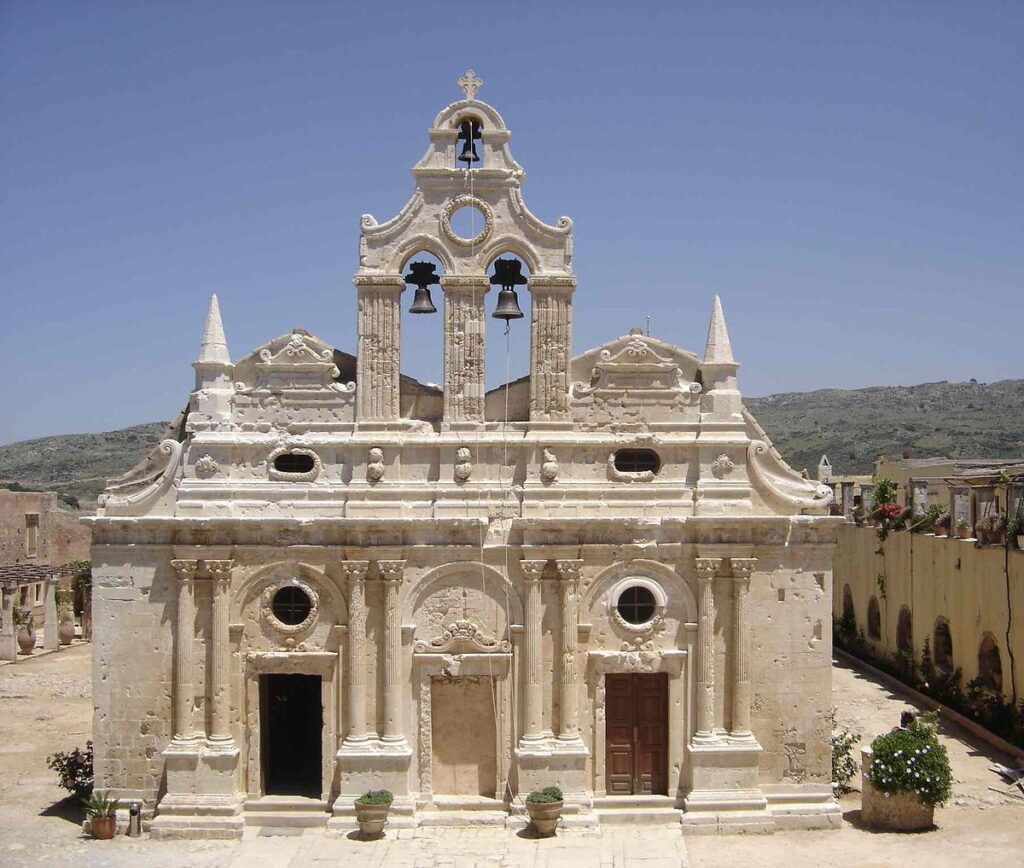On this day in 1866, one of the bloodiest events in modern Greek history took place at the historic Monastery of Arkadi in central Crete. To mark this important liberation event, we take a look back at its history.
Before the holocaust:
Under Ottoman occupation, many Cretans felt they were being mismanaged and as result, the Pancretan Assembly sent a report to the Sultan on May 14, 1866, with a series of demands.
They called for: an improved tax system, respect for the Christian religion, the right of Cretans to freely elect their elders and measures to be taken for the economic development of the island.
At the same time, they sent a secret memorandum to the monarchs of England, France and Russia, calling on them to act for the unification of Crete with Greece.
The Great Powers were indifferent, while the Greek government declared neutrality and did not openly take the side of the revolutionaries. Only Russia moved actively thanks to its deputy consuls on the island, Ioannis Mitsotakis and Spyridon Dendrinos.
Not expecting help from anywhere, the Cretans decided to rise up on their own and raise the flag of the Revolution on August 21, 1866, with the slogan “Union or Death.”
The Arkadi Monastery battle:
The Sultan was alarmed by the uprising and sent Mustafa Nailis Pasha on August 30, 1866, with an order to suppress it.
Mustafa Pasha arrived outside the Arkadi Monastery on the afternoon of November 6, 1866. He had at his disposal 15,000 men (Turks, Albanians, Egyptians and Turkish Cretans) and heavy artillery.
Inside the monastery, were rebels and almost 1,000 men, women and children from nearby villages seeking refuge from the encroaching Turks. The leaders of the Cretan revolt were Peloponnesian lieutenant, Ioannis Dimakopoulos and abbot of the monastery, Gabriel Marinakis.

The Turkish commander demanded surrender at the monastery walls. The Cretans responded with gun fire and the monastery gates were stormed as a violent battle ensued.
Eventually overwhelmed by the Turk’s superior numbers, all of the Cretan rebels were killed, leaving about 700 helpless women and children holed up in the monastery compound’s storage room, which had been repurposed for gun powder and explosives.
Soon the Turkish soldiers surrounded the massive warehouse filled with people, and at the most opportune moment, a rebel named Konstantinos Giaboudakis gathered the consensus of all inside to do the unthinkable — ignite the gun powder and die, en masse, as free Greeks.
The ensuing explosion also killed more than 1,500 Ottoman soldiers.
Legacy of the holocaust:

The Holocaust of Arkadi moved the whole Christian world and a new wave of Philhellenism was created in Europe.
Great personalities of the time, such as Giuseppe Garibaldi and Victor Hugo, took a position in favor of the Cretan Struggle and foreign volunteers rushed to support the Revolution. The financial contributions from Russia and the USA were also important.
The Cretan Revolution fully erupted in January 1869, with the Sultan unable to completely subdue the Christians of Crete.
Thus, under pressure from the Great Powers, he was forced to grant the “Organic Law” (February 3, 1868) – a kind of Constitution which provided privileges for Christians and a semi-autonomous status for the island.
The union of Crete with Greece was postponed for 1912.

